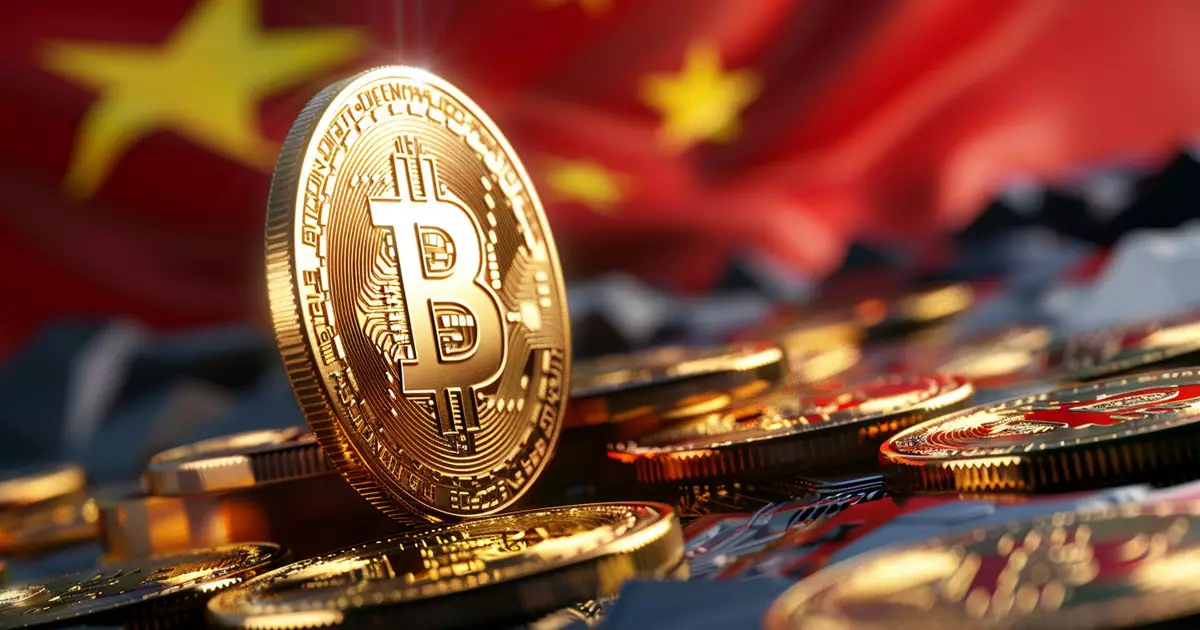The future of cryptocurrencies is often linked to global power dynamics and regulatory frameworks. Xiao Feng, the CEO of Hashkey Group, has asserted that a supportive U.S. administration for cryptocurrencies could potentially prompt China to soften its stringent stance towards digital assets. This assertion, made during an interview with the South China Morning Post, highlights a pivotal connection between American crypto policy and the perceived need for regulatory change in the Chinese market. Feng’s insights suggest that if U.S. lawmakers lay down clear and encouraging regulations regarding cryptocurrencies, it could influence China to reevaluate its approach, opening doors that have long been firmly shut.
The topic of digital assets is becoming increasingly prominent, especially as Donald Trump positions it as a crucial aspect of his 2024 campaign. Pledging to remove the current SEC Chair and dismantle existing policies that hinder crypto innovation, Trump is advocating for an environment conducive to growth within the sector. His potential approach to using seized Bitcoin as an investment rather than liquidating it further underscores a significant shift in how cryptocurrencies could be treated under his administration. If such policies take shape, they could catalyze an unprecedented wave of regulatory reconsideration in China, which has maintained a hardline approach to cryptocurrency for several years.
China’s strict regulations on crypto trading and mining have long been a subject of global scrutiny. The government instituted bans on initial coin offerings back in 2017 and prohibited crypto trading and mining by 2021. These measures signified an uncompromising stance on cryptocurrencies, primarily due to concerns over financial stability and illicit activities. However, Feng believes that a shift towards regulated digital assets, particularly stablecoins, could emerge as a bridge for more cooperation and acceptance in China. Stablecoins, pegged to real-world assets, might serve as a practical tool for cross-border transactions, potentially signaling a loosening of China’s crypto regulatory grip.
Stablecoins are gaining traction on the global stage, especially in crafting solutions for cross-border transactions. They offer a faster and more efficient alternative to traditional finance methods, which can bog down trade with their complexities and costs. In light of fluctuating economies, particularly in developing countries facing significant inflation, the appeal of stablecoins has surged. Reports indicate that the market capitalization of stablecoins climbed to approximately $165 billion by mid-2024, with transactions in the trillions reflecting their growing significance in financial activities. The increasing number of blockchain addresses engaging with stablecoins exemplifies their role in everyday transactions.
As the dialogue around cryptocurrencies continues to evolve, the intersection of U.S. policy and Chinese regulation will be pivotal. Xiao Feng’s perspective indicates a hopeful prognosis for the future of crypto in China, contingent upon proactive steps taken by the U.S. Congress and administration. Should Trump’s administration move forward with its proposed changes, it may lead to unexpected shifts in regulatory landscapes, enabling a more open and innovative financial environment in China. This convergence of regulatory interests could also mean a new chapter not only for cryptocurrencies but for global trade dynamics as well.



















Leave a Reply